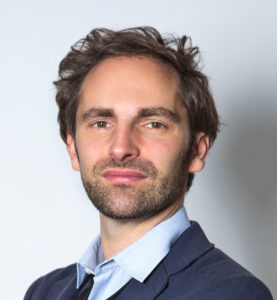
The Heads of State and Government of the EU Member States will meet for the ‘Sibiu Council Summit’ on the 9th of May to discuss the future of Europe. For almost one year everything has been heading to this single day. Like a deer in the headlights — under the sword of Damocles called Brexit and only 3 weeks before the European elections — Europe seems to be paralysed: What will happen after the 26th of May, the last day of the European elections? Who is going to be the new President of the European Commission? Will the UK participate in the elections or not? And above all: in which direction should Europe move?
However, it is not so much a question of ‘should’, but rather of ‘must’: the heads of state and government must put the well-being of citizens and sustainable development first now.
They must implement the Paris Agreement on Climate Change, take measures to protect bees and other insects, and ensure that citizens are adequately protected from hazardous chemicals.
Recent polls[1] show that these are very important issues to EU citizens: 67% of those younger than 30 years say that environment and climate protection must be the EU’s top priority for the next 10 years, and 9 out of 10 EU citizens say that protecting the environment is important to them personally and that they support parties that have the environment high on their agenda.
Without convincing change, our citizens will lose confidence in their governments, and our children will lose their future. We need an EU that protects our environment and the health and rights of our citizens. We need a strong performance of our leaders in Sibiu, so that the EU is perceived as a positive, inspiring force that gives hope for the future. And there are positive examples: the ban on disposable plastics and measures to combat toxic air pollution are named by citizens as some of the best achievements of the last 5 years.
Now it’s about going forward in a courageous and visionary way,
- systematically implementing the 17 Sustainable Development Goals and making the 2030 Agenda the overarching framework of EU policies;
- tackling climate change to limit global warming to within 1.5 °C and achieving net zero emissions by 2040;
- preserving biological diversity (including bees and other pollinators) and concluding a global agreement on biodiversity conservation;
- developing a new Common Agricultural Policy that focuses on healthy food and farming that respects the need to protect biodiversity, soil and water;
- putting in place a strategy for a non-toxic environment minimising the risk of hazardous chemicals;
- strengthening and ensuring citizens’ rights in environmental affairs, in particular for access to clean air and water and to nature as well as to courts in compliance with the Aarhus Convention;
- using the EU budget as a means to encourage a just transition to create new, safe and environmentally friendly jobs for people particularly affected by system changes such as the shift away from fossil fuels;
- improving social equality and well-being without subjecting these to the dictates of perpetual GDP growth, which has led to increasing social tensions and disillusionment in recent decades. We need to focus on the well-being of our citizens, which encompasses all three pillars of sustainability (environmental, social, economic).
Every election, every ‘new’ European Parliament and every ‘new’ EU Commission is an opportunity to reorient ourselves.
We’re talking about a ‘choice of destiny’ — will we turn to the track leading to a sustainable development that respects the planet’s borders or not? We need European decision-makers who listen to us citizens, especially the children and young people who demonstrate on the streets throughout Europe every week, and take us seriously again!
There is no planet B, and we need strong European leadership to ensure that we continue to have a viable planet A.
Or to say it in the words of Greta Thunberg (16 years old): “It is important to take part in the European elections. I am not yet allowed to vote, but those who are, should, yes must, do it!”
Bernhard Zlanabitnig
is Vice President of the European Environmental Bureau (EEB), an environmental umbrella organization based in Brussels representing more than 30 million citizens through its 150 member organizations from more than 30 countries. On the 9th of May, heads of state and government will meet in Sibiu/Romania to discuss the future of Europe: https://ec.europa.eu/commission/sites/beta-political/files/euco_sibiu_communication_en.pdf
[1] Survey by Ipsos, on behalf of: European Climate Foundation


